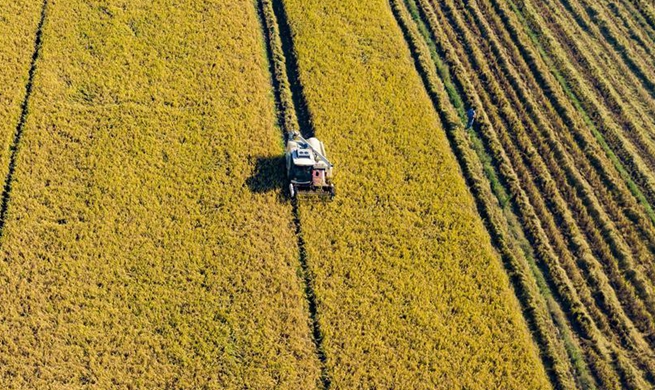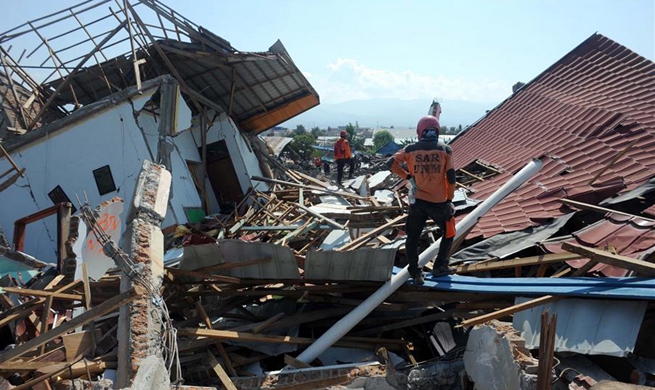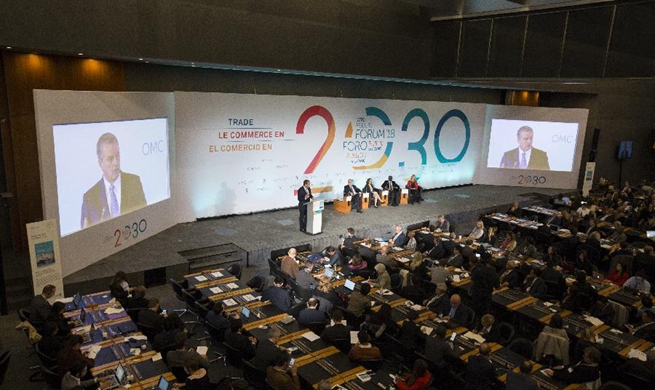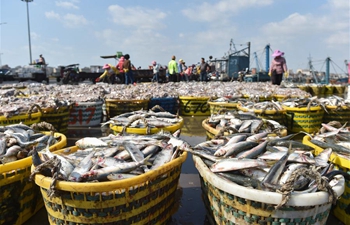CANBERRA, Oct. 4 (Xinhua) -- The Australian government's inaction on greenhouse gas emissions "goes against science," an architect of the landmark Paris agreement warned on Thursday.
Laurence Tubiana, a French diplomat and economist who played a major role in brokering the 2015 Paris Agreement, described Prime Minister Scott Morrison's refusal to revise Australia's Paris targets as "concerning."
Australia committed to reducing emissions by 26 percent from 2005 levels by 2030, but Morrison has ruled out introducing a more ambitious target despite saying that the nation set to reach the current target "in a canter."
The Paris agreement aims to keep global warming below 2 degrees Celsius but Tubiana said most commitments were "insufficient" to achieve that goal.
"(Morrison's stance) goes against the science, spirit and letter of the Paris agreement. As we see other countries preparing to increase their levels of ambition, I strongly urge Australia not to fall behind," she told Fairfax Media.
"The Australian government, along with all others, needs to listen to the science and the economics, and lead the country towards decarbonization.
"Failure to do so will have profound consequences on the country's standing in the international community and its future prospects in terms of innovation and economic opportunity."
Data released by the Department of the Environment and Energy revealed that Australia's greenhouse gas emissions rose 1.3 percent in the year to March 2018 to 529.9 million tonnes of carbon dioxide-equivalent.
Tubiana rejected Morrison's assertion that Australia would reach the 26-percent reductions target easily, saying that "the consensus in the scientific community is that Australia is not currently on track to reduce emissions and meet its Paris Agreement commitments."
"Given Australia's extreme vulnerability to climate change, as we have seen with the massive damage to the Great Barrier Reef, and the harrowing images of the epic drought across eastern Australia, Australia has a vital national interest in the entire world implementing the Paris agreement in full,"
She said that Australia had "bountiful" renewable energy potential on the same day that Pat Conroy, a climate change and energy spokesperson for the opposition Australian Labor Party (ALP), said the country could become a superpower in the sector.
Speaking at a renewable energy conference on Thursday, Conroy said Australia could replace its coal exports with renewable energy exports while simultaneously building a hydrogen economy.
Critics of renewable energy have argued it would lead to the de-industrialization of Australia but Conroy said the opposite was true.
"The shift to renewables also offers Australia the opportunity to revitalize the manufacturing sector," he told the conference.
"As the world decarbonises its electricity supply, the nations that can transform into manufacturing powerhouses are those with the cheapest energy, which will be the nations with the best renewable energy resources.
"We are the second-largest producer of rare earths, we supply 41 percent of the world's lithium and we have 12.4 percent of global copper reserves. These are all crucial materials for clean energy and battery manufacture."
The ALP has promised it will legislate a 45-percent emissions reduction target if winning the upcoming general election.













